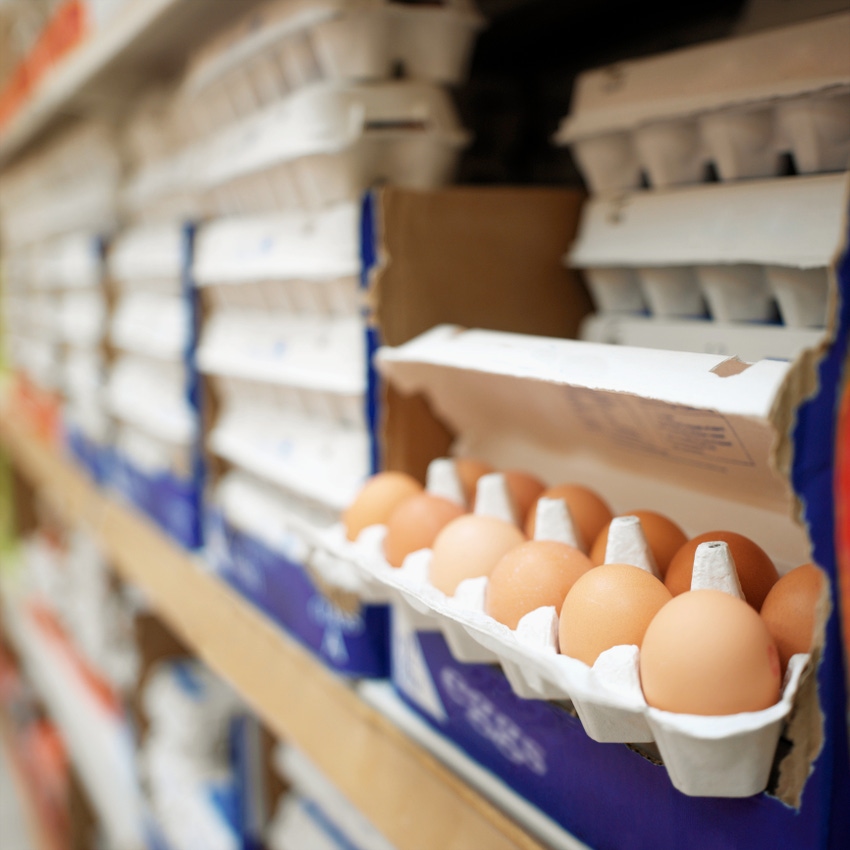Despite changing industry dynamics, company remains focused on growth strategy.

Cal-Maine Foods Inc. recently reported results for its second quarter ended Dec. 1, 2018. Net sales were $356.0 million, a 1.4% decrease from $361.2 million for the second quarter of fiscal 2018. Net income was $21.8 million, or 45 cents per basic and diluted share, for the second quarter of fiscal 2019, compared to a loss of $26.1 million, or 54 cents per basic and diluted share, for the second quarter of 2018.
The results for the second quarters of 2019 and 2018 include charges for certain legal settlements of $1.7 million and $52.8 million, after tax, respectively, but excluding these items, the company said net income was $23.7 million, or 49 cents per basic and diluted share, and $26.6 million, or 55 cents per basic and diluted share, for the second quarters of 2019 and 2018, respectively.
For the 26 weeks ended Dec. 1, 2018, net sales were $696.6 million compared to $624.0 million for the prior-year period. Net income was $34.2 million, or 71 cents per basic and diluted share, for the first half of 2018, compared to net loss of $42.1 million, or 87 cents per basic and diluted share, for the year-earlier period. Excluding the legal settlements described above, net income for the first half of 2018 was $36.5 million, or 75 cents per basic and diluted share, and net income for the 26 weeks ended Dec. 2, 2017, was $10.7 million, or 22 cents per basic and diluted share.
“Cal-Maine Foods had solid financial and operating performance for the second quarter of fiscal 2019 amid less favorable market conditions than the same time last year,” Cal-Maine Foods chairman and chief executive officer Dolph Baker said. “Our sales for the second quarter were down 1.4%, reflecting a modest decline in volumes and lower average customer selling prices for conventional eggs compared with a year ago.”
Even though the company experienced volatility in market prices during the quarter, Baker said the company’s overall average customer selling price for shell eggs was down only 0.8% compared with the second quarter of fiscal 2018. Further, he said per capita egg consumption is up near historical levels but added that supply concerns appear to be affecting market prices.
According to the U.S. Department of Agriculture, the hatch is up 10% year to date, but the actual hen inventory is up only 2.8%. Hen numbers are forecasted to continue trending upwards for the next several months, which Baker said may continue to affect market prices into 2019.
In regard to the company’s specialty egg business, Baker said Cal-Maine is pleased with the trends, as total dozens of specialty eggs sold during the quarter, excluding co-pack sales, were up 3.7% over the same period last year.
“Specialty eggs continue to be popular with consumers who are willing to pay higher prices compared with conventional eggs,” he said.
The company reported that specialty egg prices in the second quarter of fiscal 2019 were up 2.9% compared with the same period a year ago. Specialty egg revenue was 35.0% of total shell egg revenue, compared with 32.3% for the second quarter of fiscal 2018.
“As demand trends change, we will continue to provide our customers with a favorable product mix of healthy and affordable options, including conventional, cage-free, nutritionally enhanced and organic eggs,” Baker said.
Cal-Maine also continues to invest in its operations to improve overall efficiency and to prepare for the expected continued increase in demand for specialty eggs, especially cage-free eggs, he said. “We are near completion of several major capital projects at Cal-Maine Foods’ facilities and will continue to strategically expand our production capacity.”
Baker commented on the recent passing of Proposition 12 in California, saying the company is closely monitoring industry developments surrounding the event.
“While this referendum will clearly affect sourcing and production of eggs in California, we also expect it to affect future supply and pricing in other areas of the country,” he said. “With our strong balance sheet and proven management systems, Cal-Maine Foods is well positioned to capitalize on this opportunity to expand our operations or consider potential acquisitions.”
Company focused despite changes
According to Baker, the company’s operations ran well through the fall, even with on-farm production costs per dozen up 5.5% primarily due to increased feed costs.
For the second quarter of fiscal 2019, overall production was relatively flat compared with a year ago.
“Our feed costs per dozen increased 7.0% due to the higher cost of feed ingredients, primarily related to less favorable crop conditions in the South Central United States, which adversely affected ingredient prices at some of our larger feed mill operations,” Baker said.
A record U.S. harvest should provide an ample supply of feed ingredients for fiscal 2019, though, he said, adding, “However, grain prices have been volatile due to the geopolitical issues and uncertainties surrounding the latest international tariff policies.”
In spite of changing industry dynamics, Baker said Cal-Maine remains focused on executing the same growth strategy in the second half of fiscal 2019.
“We will strive to continue to manage our operations in an efficient and responsible manner and to provide a favorable product mix, including cage-free and other specialty eggs, that meets the needs of our valued customers. We look forward to the additional opportunities ahead for Cal-Maine Foods,” Baker concluded.
About the Author(s)
You May Also Like




.png?width=300&auto=webp&quality=80&disable=upscale)
